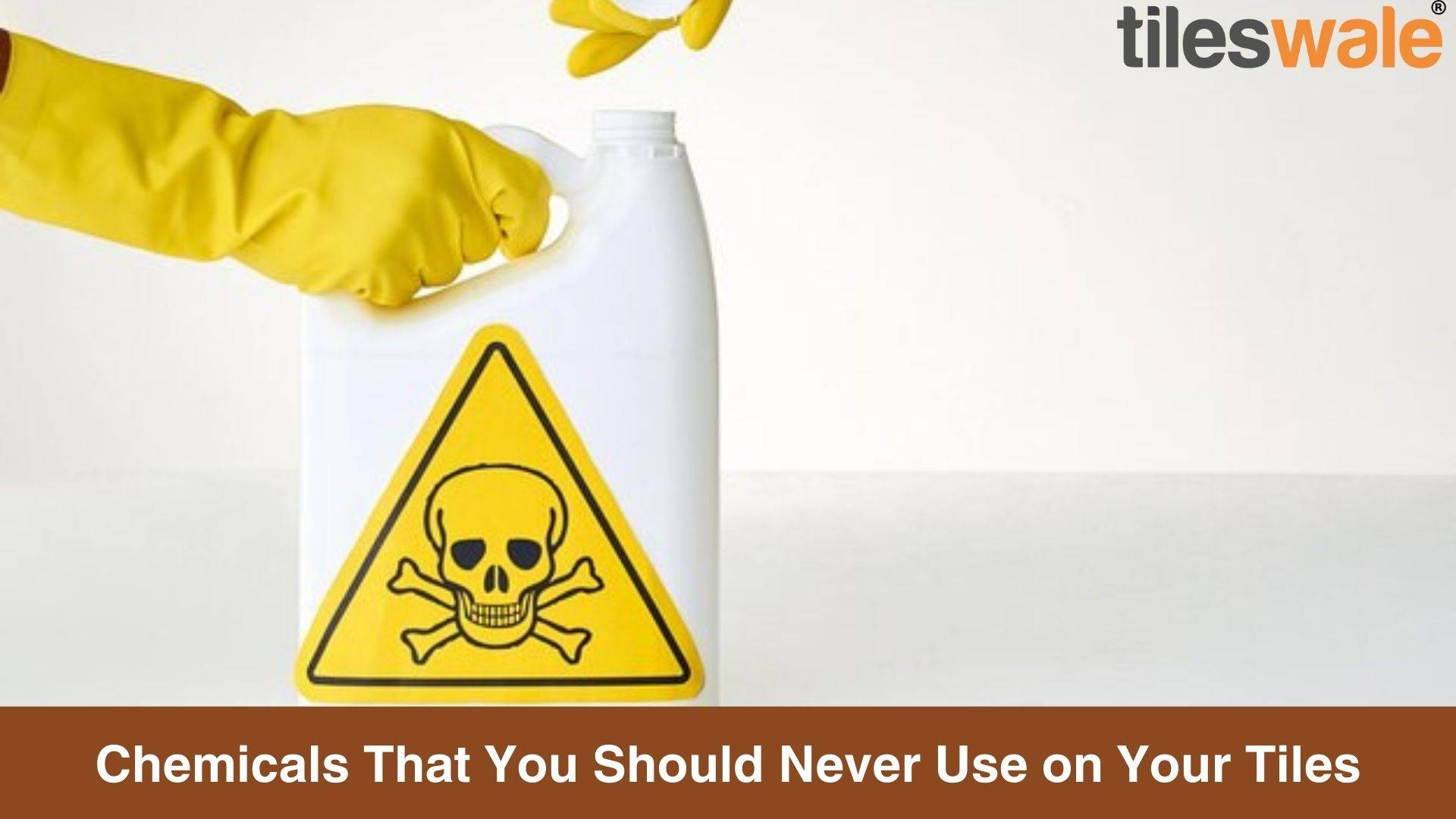
World's First Ceramic-Tile & Sanitaryware Live Marketplace. Get it on Google Play
Get it on App Store
World's First Ceramic-Tile & Sanitaryware Live Marketplace. Get it on Google Play
Get it on App Store
By Tileswale
Tiles are extremely durable against physical damage, but not so much against certain chemicals. Most people tend to use these chemicals to regularly clean their tiles, which can cause irreparable damage. It is great to know what kind of chemicals are safe for your tiles, but more importantly, you must know what not to use to prevent accidentally damaging their elegance.
So, the next time you are cleaning your tiles or the more sophisticated grout, ensure you use the right products. We all hate grout stains, don’t we? Now that we agree, let's head on to our blog.
If you are not someone who uses professional floor cleaning services, then you are sure to use tile-cleaning solutions like Domex, Harpic, and Cif, or any of the tile-cleaning products in a supermarket. If that’s what you are doing then it is all fine, they will help you polish your tiles without damaging them. But if you are using any of the chemicals on this list, your tiles will not be so much as fine anymore.
Bleach (Calcium hypochlorite)
Vinegar and Acidic Cleaners
Ammonia-Based Cleaners
Abrasive Cleaners
Oil-Based Cleaners
Bleach is a household name at this point, it is that popular of a household disinfectant. It is used to clean toilets and bathrooms tiles in most households. However, using bleach to clean tiles can cause discoloration and damage. Bleach is a strong chemical that can erode the grout between the tiles, hence making them loose. Breathing in the fumes produced by bleach could also be harmful to your health. It is advisable to avoid using bleach on your tiles and to wear protective masks while using bleach for other purposes.
Anytime you search for DIY hacks to clean anything, vinegar shows up at the top for a reason. It is one of the best cleaning agents out there that does not contain harmful chemicals. But it shows corrosive behavior when you try to use it with tiles and grout. Lemon or lime in acidic cleaners can cause etching on tiles made of stone, such as marble and limestone. They will steal the beauty of your tiles by giving them a dull, old, and incomplete appearance.
Ammonia is known for its degreasing properties. Using it with grout can contribute to the erosion of grout, which weakens the structural integrity of the tiles. It can also damage the surface of certain types of tiles with glossy finishes by stripping away the protective layer, leaving them vulnerable to scratches and damage.
Abrasive cleaners might be a good choice for tough stains but do not carelessly use them on your tiles. They cause scratches on your tiles and slowly wear them down, deteriorating their appearance. Ceramic and porcelain are the tiles most susceptible to abrasive cleaners, they start showing noticeable scratches when these chemicals have eroded the protective coating.
If your tile ever gets greasy or grimy, it may make sense to use oil-based cleaners to combat them, but while doing that you could end up making your tiles slippery. Oily residues from the cleaners don’t disappear in an instant, they can linger around, waiting to trip unsuspecting bipeds in your kitchen or bathroom space. You certainly don’t want to slip and break your head, or the tile, or both. Additionally, they can attract dirt and dust, which defeats the purpose of cleaning in the first place.
In a nutshell, to keep your tiles looking as fabulous as a disco ball at a dance-off, it's essential to be picky about your cleaning sidekicks. Say 'no thanks' to the tough guys like bleach, acidic meanies, ammonia troublemakers, abrasive bullies, and oil slicks.
Choose the gentle, tile-loving squad instead, and you'll have a home so clean that even dust particles will start practicing their tap dance routines! If you feel your tiles need professional attention, you can always opt to hire a professional tile cleaner to do the work for you.
Submit your inquiries, we will see the rest
size:
Quantity:

+ Requirements

We have received your Inquiry. We will soon connect you with relevent Sellers via tileswale App. download now!!

